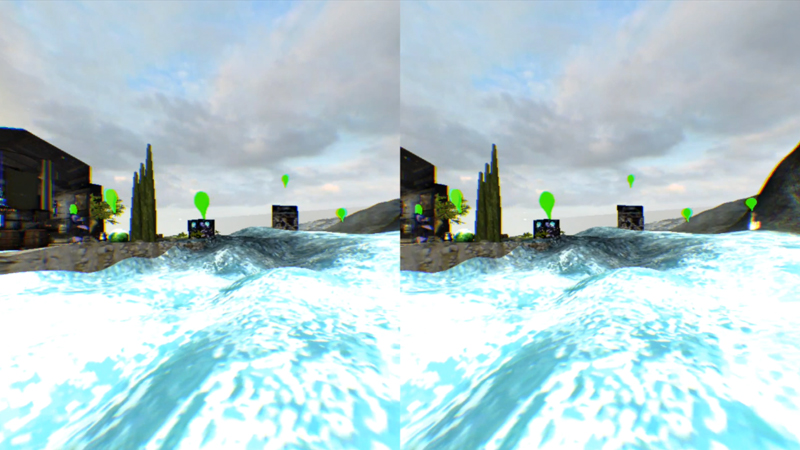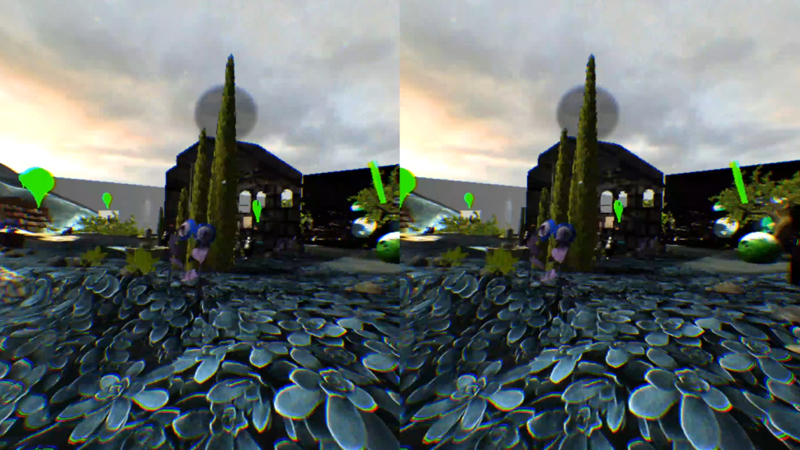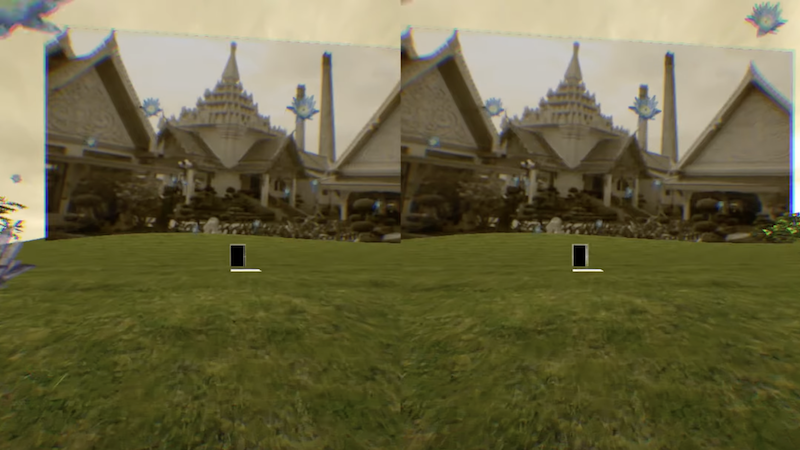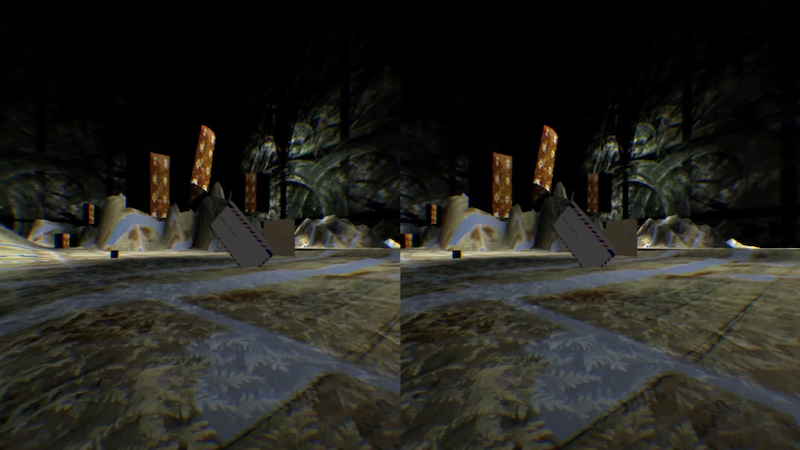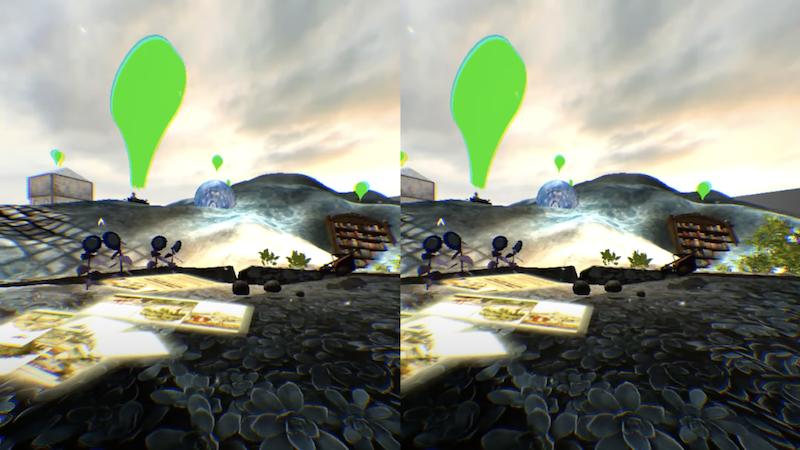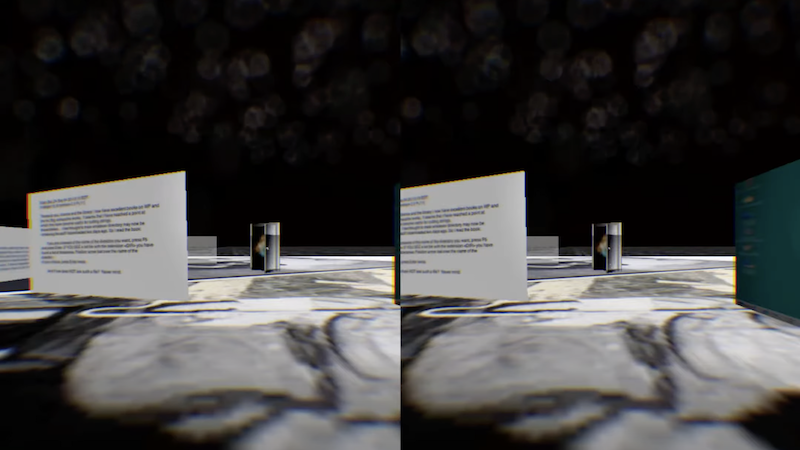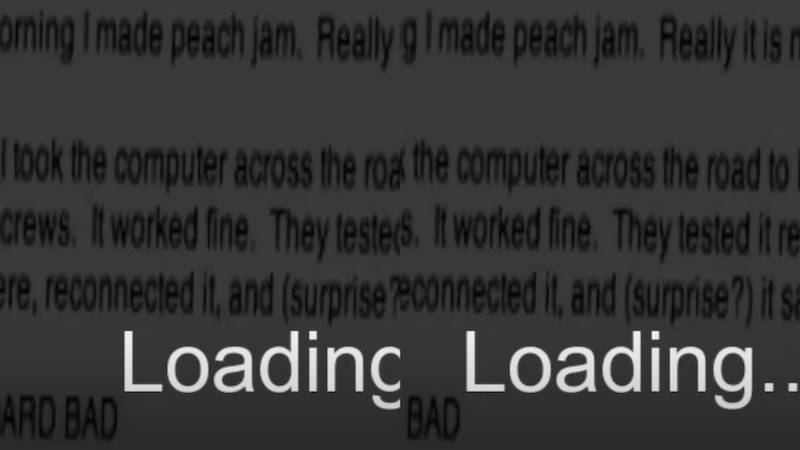"Caitlin Fisher's Everyone at this party is Dead/Cardamom of the Dead offers a psychogeographic memory palace that a user can explore through through a virtual reality interface. Everyone at this Party is Dead stands as one of the inaugural literary pieces that explore the poetic capacities of VR headsets like the Oculus Rift. Starting with a memory of a 21st birthday party in which all the guests are now dead, the haunting visual and aural fragments of traumatic memory are reinforced through an unsettling bodily awareness that arises from the embodied experience of immersive virtual space. In the same way memory is never linear or seamless, Everyone at this party is Dead/Cardamom of the Dead tears at the edges of virtual reality as a technical system and philosophical concept. The instability of memory, the play between truth and fiction, and the complex ways in which the past are being constantly remediated through this highly visceral mediation on the remembrance of things past result in a complex mediation on the relationship between media, memory, and death." "A co-founder of York's Future Cinema Lab and founder and Director of the Augmented Reality Lab, Caitlin Fisher investigates the future of narrative through explorations of interactive storytelling and interactive cinema in Augmented Reality environments." -- from Electronic Literature Collection, Volume 3
 Experiencing the Work
Experiencing the Work
Visitors engage this virtual reality piece using a head-mounted display. Visitors navigate a three-dimensional space using the tracking of the head-mounted display to center the view, and a controller to move through space. (There is no avatar body.) Green map marker icons are crucial to accessing different aspects of the narrative, which is largely communicated with space and audible narration. Other sounds occasionally feature, and all sound can be inconsistent. Sound is calculated based on the avatar's location in three-dimensional space. A minority of narrative content is text that is unavailable to assistive technologies.
1 COPY IN THE NEXT
The Electronic Literature Collection Volume 3
Published in 2016 by Electronic Literature Organization.
The ELO gave this copy of the work to the Electronic Literature Lab in 2018.
PUBLICATION TYPE
Anthology
COPY MEDIA FORMAT
Application
